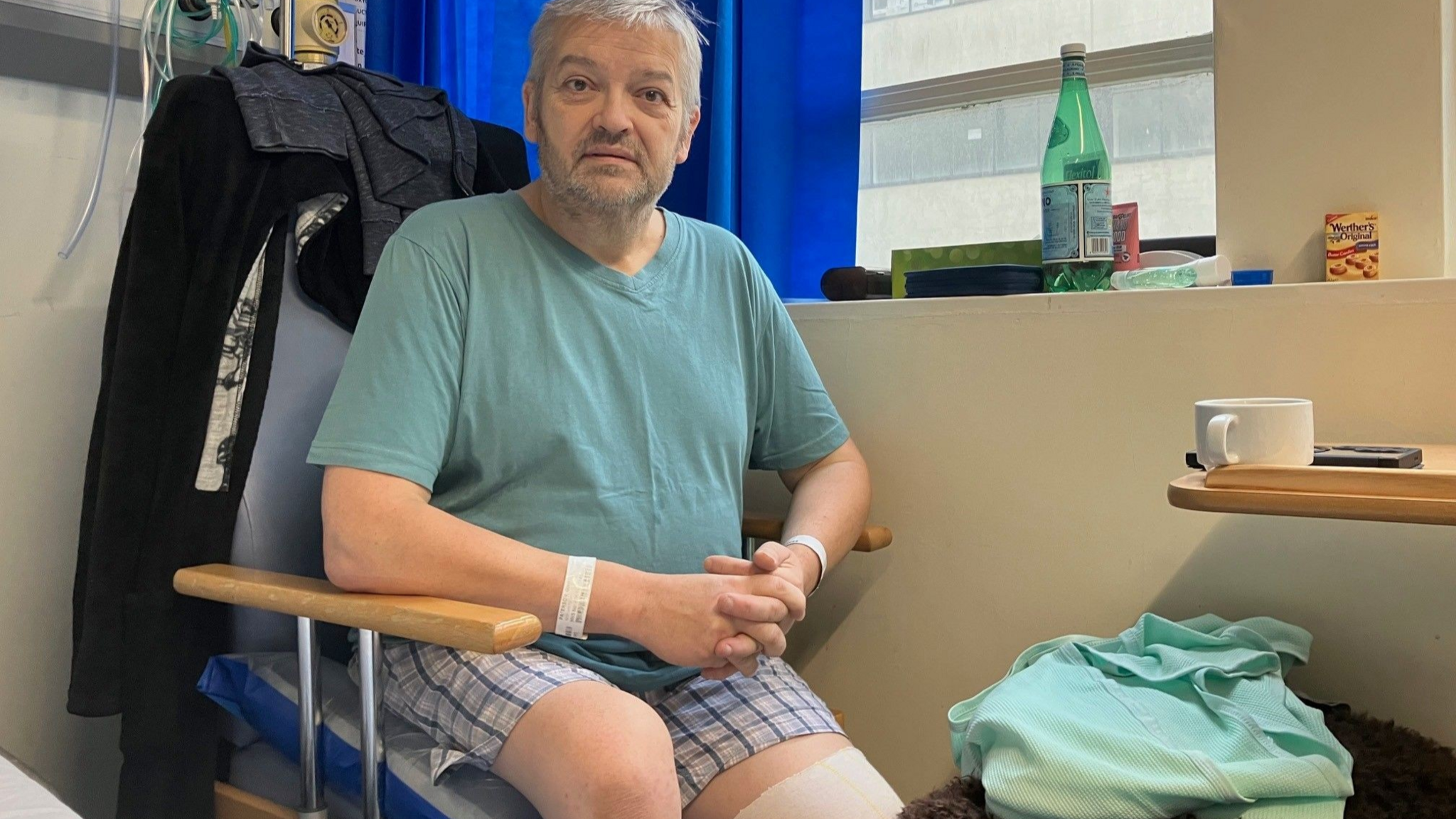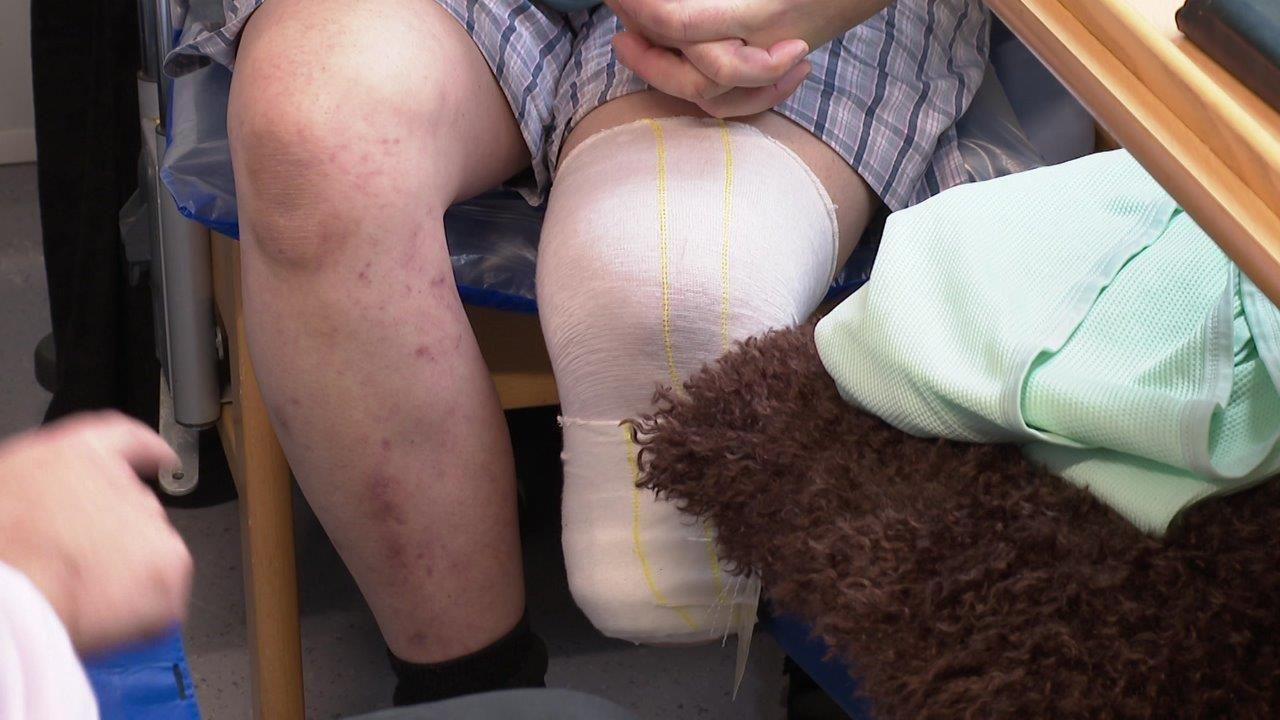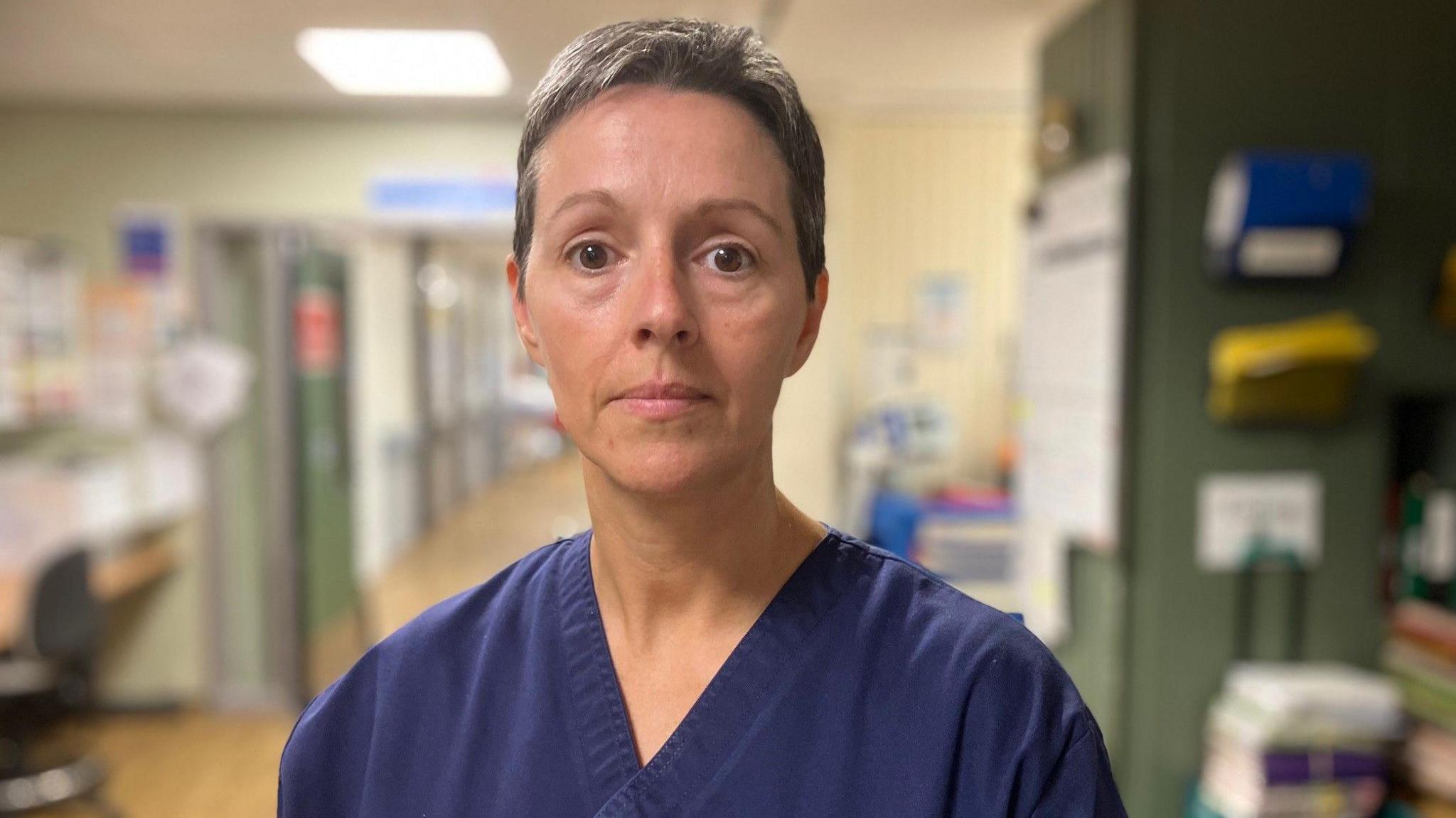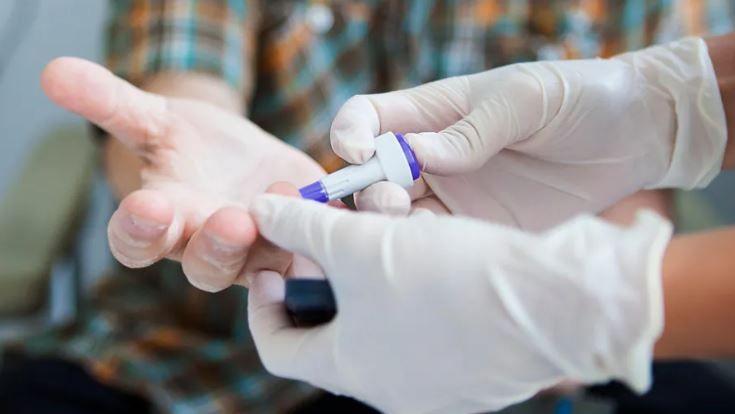Diabetic man sacrificed his leg to save his life

After living with unbearable pain caused by diabetes, Glen Paterson felt a sense of relief when his lower leg was amputated
- Published
"It's a massive thing to choose to have a limb removed... but I was in a very dark place."
Sitting in his hospital chair in Cardiff, Glen Paterson explains how the distress of living with complications caused by diabetes forced him to make the "massive" decision which would permanently change but ultimately save his life.
He is one of hundreds of diabetic people in Wales to need drastic intervention and NHS staff and charities are warning of a "wave" of amputations amid rising rates of the disease.
Four years ago when he developed a small wound on his heel, the 55-year-old from Caerphilly had no idea it would almost kill him.
That "small crack" refused to heal and soon things became much more serious.
"The infection was bubbling away and before I knew it I had sepsis."
The life-threatening blood condition made him so ill he was admitted to hospital several times and was in constant pain.
Diabetic patient used social media to find insulin
- Published15 July 2024
Woman, 90, had three-day wait in A&E chair
- Published9 January 2023
He said having that "hole in your foot" for almost four years "took me to a very dark place on more than one occasion".
"It's the mental pain of sitting down and looking at a wall, you've watched everything on all the streaming services... you don't want to listen to music, turn on the TV or do anything."
Mr Paterson, who works as a counsellor helping vulnerable families, has type 2 diabetes, external, which causes a person's blood sugar level to become too high.
It can also reduce the blood supply to the feet, damage nerves and cause a loss of feeling.
As a result, someone might not notice if they have an injury, which can lead to ulcers, infections, and even amputations.
Mr Paterson said: "To have to sit down and think - do I have my life taken or do I save it? Do I lose a limb to save my life?"

Oozing wounds and ulcers can develop on feet which are hard to treat and ultimately lead to tissue dying
At the University Hospital of Wales' vascular ward, where Mr Paterson is recovering, staff are worried about a big rise in diabetes-related amputations.
Ward manager Rhiannon Joseph said the majority off the 22 diabetic patients had problems with their feet and circulation and in some weeks, doctors were carrying out six or seven amputations.
"We're seeing a lot of patients coming through that are leaving it too late," she said.
"I think there will come a point when the system becomes overloaded, without a doubt."

Rhiannon Joseph said 22 of the 38 patients on the vascular ward that day had diabetes
For some patients like Mr Paterson, the prospect of having a limb removed can bring relief, but for others it can be a distressing shock.
"If you've come into hospital because your toe has gone a funny colour and you've got an infection and suddenly we're telling you your leg has to be amputated... that's life-changing and it can have a huge impact on patients," Ms Joseph said.
About 8% of adults in Wales have diabetes - the highest rate of any UK nation - and if current trends continue it is estimated that by 2035-36 that could rise to one in 11 adults - 260,000 to 300,000 people.
The number of amputations related to diabetes in Wales reached 656 in 2021/22.
It costs about £17,000 each time, with an average hospital stay of 20 days and diabetes accounts for about 10% - £500m - of the NHS's annual budget.
Mathew Norman, Diabetes UK Cymru's deputy director for Wales said diabetes, if left unchecked, could be "life-altering".
Aside from losing a limb or vision - another complication - people might need guide dogs, crutches or a wheelchair.
People with diabetes are entitled to a series of checks to monitor for complications, but the charity is worried about a relatively low uptake, with only about 40% of eligible people having them.
Whereas type 1 diabetes is a lifelong condition, type 2, which accounts for about 90% of adult cases, usually develops later in life.
People cannot make lifestyle changes to lower their risk of type 1, but healthy eating and exercise can reduce the risk of type 2.
That's more adults with type 2 diabetes than the entire population of Swansea. It's a big number.

The Welsh government said it was investing in a range of initiatives to help people lead healthier lives but was worried about the increase in type 2 diabetes.
Dr Keith Reed, the Welsh government's deputy chief medical officer for public health, said about half of the people with type 2 diabetes "could potentially not have diabetes if they had behaved differently, if the environment had been different or if they had followed a different path".
Related topics
- Published14 November 2023

- Published12 June 2024

- Published19 June 2024
